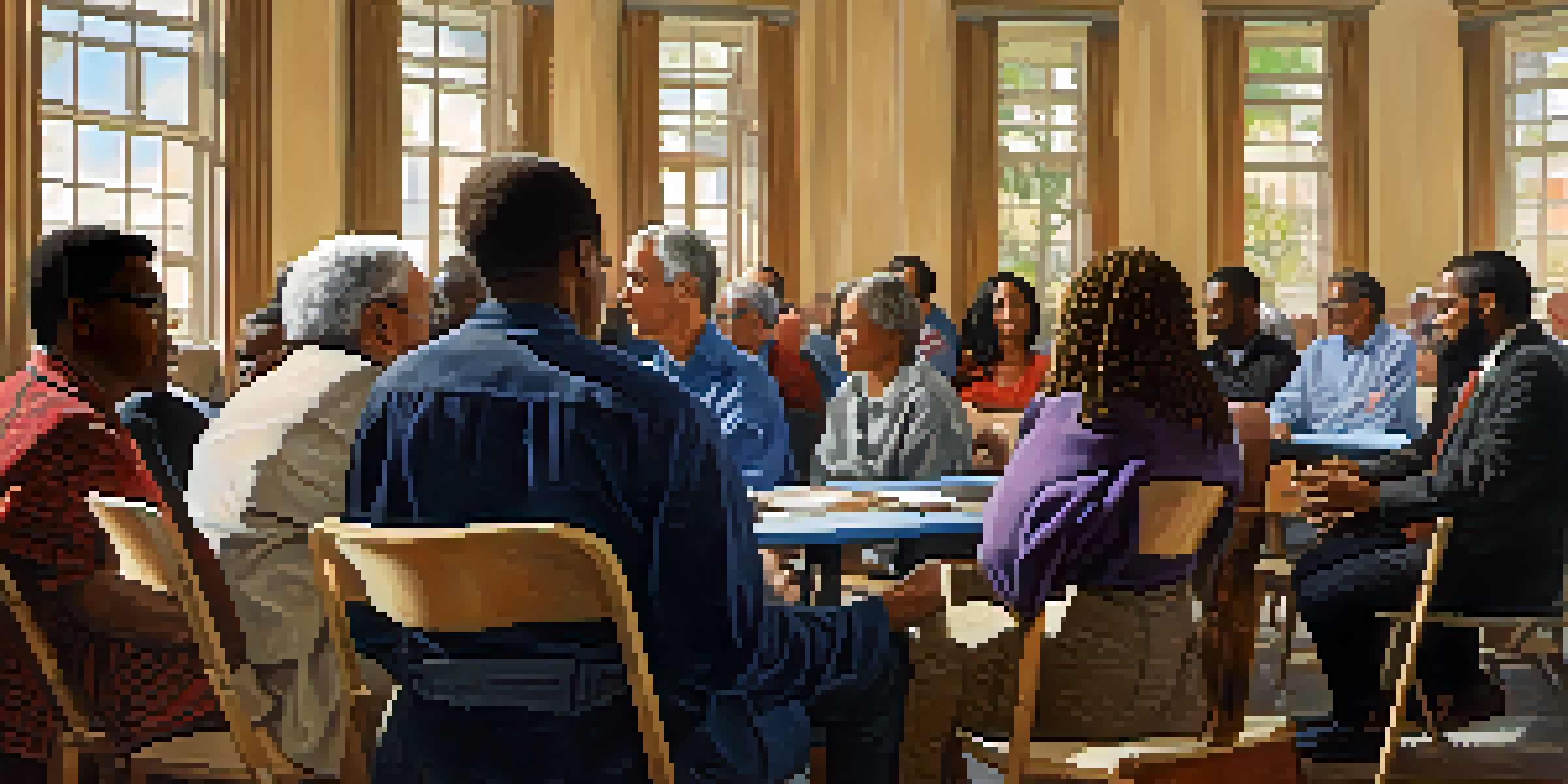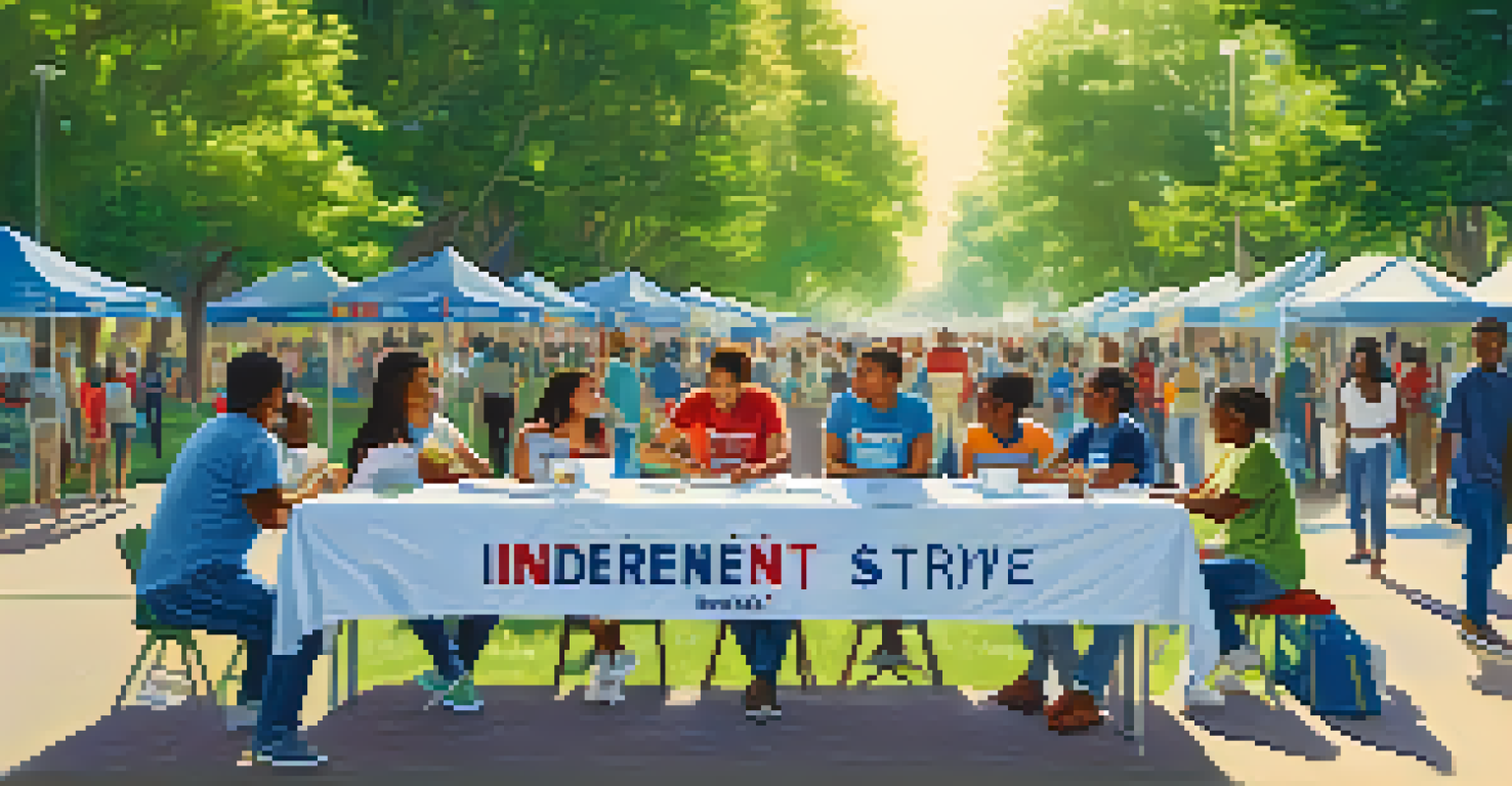Analyzing the Role of Independent Voters in Florida Elections

Understanding Independent Voters in Florida
Independent voters are those who do not register with any specific political party, allowing them to remain flexible in their choices. In Florida, this group has been gaining prominence, reflecting a broader trend of discontent with the traditional two-party system. These voters often prioritize candidates and issues over party affiliation, making them a unique and vital segment of the electorate.
The future of independent voters will depend on how effectively candidates and parties adapt to this changing electorate.
With over 4 million registered independent voters in Florida, their impact on elections cannot be overlooked. They represent a significant voting bloc that candidates from both major parties must consider when formulating their strategies. In fact, the growth of independent registrations has led many to question whether traditional party lines still hold the same weight in the state’s electoral dynamics.
Their increasing presence indicates a shift in public sentiment, where voters are seeking alternatives to the conventional political narrative. As independent voters often lean towards issues that resonate with them personally, understanding their motivations is crucial for any candidate aiming to capture their support.
Historical Voting Trends of Independents
Analyzing past elections reveals how independent voters have influenced outcomes in Florida. In recent years, key races have shown that these voters can tip the scales, especially in closely contested elections. For instance, during the 2020 presidential election, a significant number of independents chose to support candidates outside the mainstream party lines, highlighting their pivotal role.

Examining voter turnout among independents offers insights into their impact. Typically, independent voters have higher turnout rates in competitive elections, often driven by heightened interest in specific issues such as healthcare, education, and climate change. This trend suggests that mobilizing this group can be a game changer for candidates looking to secure victory.
Independents Shape Florida Elections
With over 4 million registered independent voters, their choices significantly influence election outcomes in Florida.
Moreover, trends indicate that independents are not a monolithic group; they often have diverse opinions and preferences. This diversity means that candidates must tailor their messages effectively to appeal to different segments within the independent voter base, making their strategies all the more complex.
Key Issues for Independent Voters
Independent voters in Florida tend to prioritize issues over party loyalty, which sets them apart from their registered party counterparts. Topics such as healthcare, economy, education, and environmental policy resonate strongly with this demographic. Understanding these key issues is essential for candidates hoping to engage and attract independent voters.
Independent voters are not a monolithic group; they often have diverse opinions and preferences.
For instance, when candidates address healthcare reform, independents often look for pragmatic solutions rather than party rhetoric. This practical approach influences how independents assess candidates, often leading them to support those who demonstrate a commitment to bipartisan collaboration. As a result, candidates who can articulate clear, issue-focused platforms are more likely to gain traction among these voters.
Additionally, independents are increasingly concerned about political polarization and seek candidates who promote unity and bipartisanship. This desire for a more collaborative political environment can guide independent voters' preferences, making it crucial for candidates to communicate their willingness to work across the aisle.
The Role of Media in Shaping Independent Opinion
Media plays a significant role in shaping the opinions and perceptions of independent voters. With the rise of digital platforms, independents are increasingly exposed to a variety of viewpoints that can influence their electoral decisions. This diverse media landscape allows them to engage with issues on their terms, often leading to more informed voting choices.
Independent voters often seek out information that aligns with their values rather than adhering to a single narrative. This tendency highlights the importance of candidates engaging with voters through multiple channels, including social media, podcasts, and community events. The more accessible and relatable the message, the higher the chances of resonating with this critical voter segment.
Key Issues Drive Independent Votes
Independent voters prioritize issues like healthcare and education over party loyalty, making their preferences crucial for candidates.
Moreover, independent voters are adept at discerning bias in media coverage. They tend to favor candidates who present themselves authentically and transparently, as opposed to those who rely on partisan rhetoric. Therefore, cultivating a genuine connection through honest communication can be a powerful strategy for candidates looking to woo this unpredictable group.
Challenges Faced by Independent Voters
Despite their growing numbers, independent voters face challenges that can impact their electoral influence. One significant hurdle is voter suppression, which can disproportionately affect independents, especially in contentious races. This makes it essential for advocacy groups to ensure that independent voters are informed about their rights and the voting process.
Additionally, independents often feel disenfranchised by the political system, believing that their voices are overshadowed by the larger parties. This sentiment can lead to lower turnout rates when they feel their votes won't have a significant impact. Candidates who engage with independents directly and address their concerns can help counteract this feeling of disenfranchisement.
Furthermore, the lack of a unified platform among independents can make it challenging for candidates to appeal to this diverse group. Understanding that independent voters are not a single entity but rather a coalition of various beliefs is crucial for candidates aiming to build a broad coalition that includes these voters.
Independent Voters and Turnout Rates
Turnout rates among independent voters can fluctuate significantly based on various factors, including the competitiveness of the election and the issues at stake. Studies have shown that when independents feel strongly about a particular election, their turnout can rival that of registered party members. This highlights the importance of galvanizing their interest and engagement leading up to election day.
For instance, in the 2018 midterm elections, independent voter turnout surged, driven by issues such as healthcare and immigration. Candidates who recognized and addressed these concerns were able to mobilize this crucial demographic effectively. As such, understanding what drives turnout can be a key strategy for candidates looking to secure votes from independents.
Media Influences Independent Opinions
The diverse media landscape allows independent voters to engage with multiple viewpoints, affecting their electoral decisions.
Moreover, initiatives aimed at increasing voter registration and education among independents can have lasting effects on turnout rates. Encouraging civic engagement through outreach programs can empower independents, ensuring they feel valued and motivated to participate in the electoral process.
The Future of Independent Voting in Florida
As Florida continues to evolve politically, the role of independent voters is likely to grow even more significant. With shifting demographics and increasing discontent with traditional party politics, independents may become a defining factor in future elections. Candidates who can successfully connect with this group stand to gain a considerable advantage.
Looking ahead, we may see more independent candidates emerging, challenging the status quo and providing alternatives for voters seeking change. This trend could further amplify the influence of independents, creating a more diverse political landscape in Florida. As independents continue to assert their presence, the dynamics of campaigns will inevitably shift.

Ultimately, the future of independent voting will depend on how effectively candidates and parties adapt to this changing electorate. By focusing on issues, fostering inclusivity, and promoting voter engagement, the political landscape in Florida could become more representative of its diverse population, with independent voters at the forefront of this transformation.